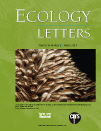Eco-evolutionary experience in novel species interactions
Wolf-Christian Saul, Jonathan M. Jeschke – 2015
A better understanding of how ecological novelty influences interactions in new combinations of species is key for predicting interaction outcomes, and can help focus conservation and management efforts on preventing the introduction of novel organisms or species (including invasive species, GMOs, synthetic organisms, resurrected species and emerging pathogens) that seem particularly ‘risky’ for resident species. Here, we consider the implications of different degrees of eco-evolutionary experience of interacting resident and non-resident species, define four qualitative risk categories for estimating the probability of successful establishment and impact of novel species and discuss how the effects of novelty change over time. Focusing then on novel predator–prey interactions, we argue that novelty entails density-dependent advantages for non-resident species, with their largest effects often being at low prey densities. This is illustrated by a comparison of predator functional responses and prey predation risk curves between novel species and ecologically similar resident species, and raises important issues for the conservation of endangered resident prey species.

